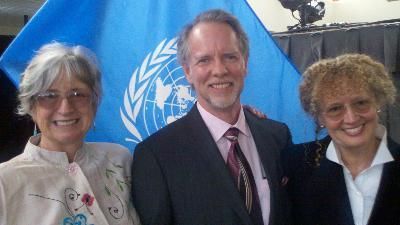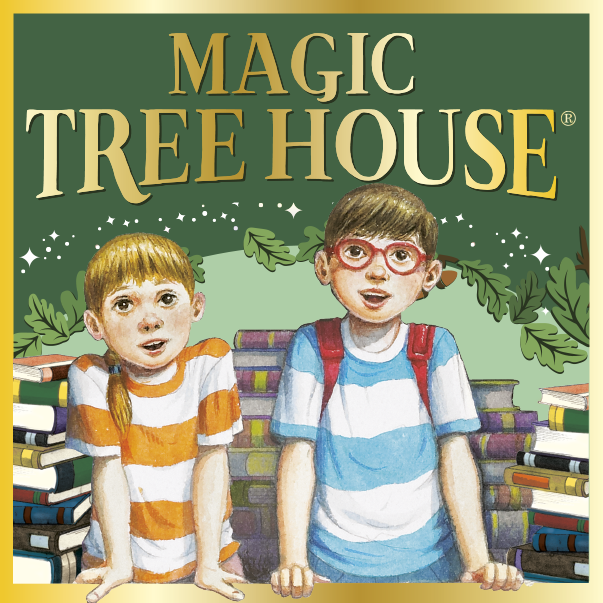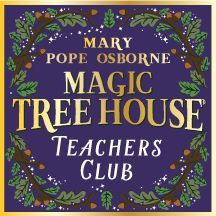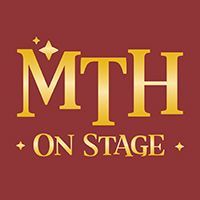United Nations Speech

On April 27, I had a great adventure with my husband Will and my sister Natalie — we went to the United Nations in New York City! We attended a conference on Health and the Environment where I gave a speech called A Bridge of Children’s Books. I include a copy of my talk below:
On April 27, I had a great adventure with my husband Will and my sister Natalie — we went to the United Nations in New York City! We attended a conference on Health and the Environment where I gave a speech called A Bridge of Children’s Books. I include a copy of my talk below:
I’d like to thank Dr. Durbak and the World Information Transfer for inviting me to speak at this conference on health and the environment.
At first, as an author of children’s books, I was unclear what I would have to contribute to your discussions about nuclear security, energy resources and environmental health.
But then I realized that no conference on health and the environment would be complete without addressing the needs of children, as they will eventually have the responsibility of solving many of the problems discussed today.
I derived the title of my talk, A Bridge of Children’s Books, from the title of an out-of-print autobiography written by a remarkable woman little known by most of the world: Her name was Jella Lepman.
Jella Lepman escaped the Nazi’s in the 1930s; but after Hitler was defeated, she returned to war-ravaged Munich as an advisor for the needs of women and children. Jella quickly decided that Germany’s traumatized children needed more than food and shelter. They needed to reconnect with the world of the imagination.
So Jella began collecting children’s books from all over the world. She believed that a bridge made of children’s books would move the children beyond the landscape of their bombed-out surroundings. Books would not only link them to the playful realm of folklore and fairytales, but would also connect the children to history and to cultures outside of Hitler’s Germany.
With the help of Eleanor Roosevelt and others, Jella Lepman founded the International Youth Library, which is now housed in Blutenburg Castle in Munich, which my husband Will and I visited last May. There we walked through a maze of basement stacks where nearly 600,000 children books in over 130 languages are kept. The library has an art studio for children and offers writing classes, readings, and foreign language classes.
I find it fitting that Eleanor Roosevelt gave her support to Jella Lepman’s project. At the same time, Mrs. Roosevelt was helping to draft the Universal Declaration of Human Rights. The influence of that extraordinary document has helped promote all over the world the concept of the inherent dignity of all members of the human family. Every person on earth is entitled to a sense of self-worth and purpose.
In my opinion, there is nothing more dignified than a child reading a book. There is nothing more likely to help that child escape from undeserved pain, poverty and oppression — than using his or her imagination.
I witnessed the power of the imagination to transcend hopelessness many years ago while teaching a writing workshop at a runaway shelter in Times Square, NY.
Every day I would ask the homeless teenagers to write about their lives. The daily writings were so unhappy and distressing I finally couldn’t take it anymore. One day, from a sidewalk vendor, I spontaneously bought a bundle of old National Geographic magazines. I took the magazines home and cut out all the pictures I could find of wondrous places – the Amazon River, the Himalayas, the Serengeti Plain.
I passed out the pictures the next day and asked the kids to take themselves away from Times Square, travel to these exotic places in their imaginations and make up a story. The writing that day was joyful and refreshing. The teenagers laughed as they read their pieces; they added boyfriends and family to the stories they told about canoeing down the Amazon or climbing the Himalayas. My experience at the shelter taught me that the imagination was perhaps the only way out for these children. The circumstances of their lives seemed so hopeless that this was their only means of escape.
Every child is capable of using imagination. Every child has a hunger to know things. But not all children live in an environment where their imaginations might be stimulated or their thirst for knowledge satisfied. Nearly all the children at the shelter came from extremely impoverished neighborhoods. Most likely there were no books in their homes – and hardly any in their schools.
Studies show that in low-income neighborhoods in this country there is approximately 1 book for every 300 children. Approximately 50 percent of unemployed youth in this country are functionally illiterate. 60 percent of America’s prison inmates cannot read above a fourth grade level. And 85 percent of juvenile offenders have serious reading problems. The fact I find most compelling is this: Penal institution records show that inmates have a 16% chance of returning to prison if they receive literacy help – as opposed to 70% for those who receive no help.
It’s obvious that we need to find better ways to teach all children to read. But I believe that literacy alone is not enough. We need to give children a passion for reading. Once ignited, this passion can be a fierce motivation for a young person to try to change his or her life for the better.
A number of years ago, I along with other children’s authors spent a year visiting a number of disadvantaged schools in the New York area. After a visit to a school in the Bronx that had no windows and no library – the school was housed in an old bowling alley — I received a letter addressed to me in very crude handwriting.
The letter was from a second grader at the school. I could only imagine the trouble she must have gone to to find a stamp and an envelope and mail me a letter. She was asking me to send one of my books to her at her school so that she could own it. I wrote her back, and tried to explain that I could not send a book to her school just for her, because it wouldn’t be fair to all the other kids. It pains me now to think about my answer.
A week later, I signed books at a book fair at a private school on the Upper East Side of Manhattan. The children in line all had blank checks from their parents and were encouraged to buy as many books as they wanted.
On the very day of the book fair, when I returned to my apartment, I found a second letter from the girl in the Bronx waiting for me. Twice now she had found a stamp and an envelope and written to me personally!
“I figured out a way you could do this,” she wrote. “Send me the book to my house and I don’t tell nobody. I promise”.
What a passion for reading this child had. I burst into tears, and of course, sent her a book. But now I wish that I had sent books to all the children in her school as well.
By not providing children with books, by not helping them discover the joy of reading — we are suppressing not only their dreams, their hope for the future, but their inherent dignity.
What strikes me the most about this situation is this:
It doesn’t have to be this way. In the greater scheme of things in this world, it should not be that difficult to provide all children with the tools to learn how to read and with literature that helps their imaginations soar.
Some people are trying to change this situation:
Every year publishers must destroy untold numbers of unsold children’s books that are remaindered in warehouses. Twenty years ago, a Washington lawyer named Kyle Zimmer and others became aware of this fact, so they formed an organization called First Book. First Book invites major publishers of children’s books to give them their remaindered books. First Book then works with community-based programs to get free books to children in low-income neighborhoods.
My friends from Random House here today should be proud that their company has donated almost 19 million books to First Book. I’m happy to say that Random House also donated 50 titles from my Magic Tree House Series to another organization called Worldreader.
The goal of Worldreader is to put digitized books into the hands of every family in the developing world.
According to UNESCO there are 1 billion non-literate adults in the world. 98% of them live in developing countries. Half the children in sub-Saharan Africa do not go to school. Of the ones that do, many of them do not have a single book in their classrooms.
So Worldreader started with 6 schools in Ghana, providing children and teachers with 500 e-readers. The e-readers have a total of 40,000 books. They’ve found that the average child shares the reader with 3 family members and downloads a free book a week.
Worldreader is headed to Kenya this spring. Over the next 2-3 years they hope to roll out their program to at least 20,000 students, primarily in Sub-Sahara Africa. Their dream is that in 5 years they will enable 1 million new children and families in the developing world to have access to books.
Not long ago, I’ve received word from Worldreader that the children in Ghana love the adventures of the characters in the Magic Tree House series. Forgive me if for the moment, I ask you to look through the lens of the Magic Tree House at its young readers.
For 20 yrs, I’ve been told by teachers and parents that the main reason kids love the Magic Tree House books is because they identify so strongly with the main characters, Jack and Annie.
Jack and Annie are ordinary kids who travel in a magic tree house throughout time and history, visiting other cultures. They quibble with each other and have insecurities and fears. But they also love to help others. They love learning new things. They have great respect for other cultures. They rescue people from earthquakes, blizzards, floods, forest fires, volcanoes, and tsunamis. They also celebrate the natural world and try to save endangered species.
I’m amazed that children identify with Jack and Annie in so many countries besides the United States –in Ghana, Japan, Korea, China, Latvia, Brazil, Germany, Turkey, Iran, Israel, Italy, Serbia, the Czech Republic. The books are available in 35 countries that I know of.
To me, the fact that all these children from so many different countries identify with Jack and Annie means that there is one children’s world, a world where small people are inherently the same: They all value compassion, curiosity, and courage; they have respect for the wonder and beauty of nature and respect for the inherent dignity of all members of the human family.
I can tell you from this small United Nations of readers that our future is in good hands. Children everywhere are ready and eager to meet the challenges that are being discussed at this conference.
But for them to do their job someday, we need to do our job today: We need to teach the children of the world to read; and we need to expand the reach of children’s books. Like First Book and Worldreader, many other non-profit groups are trying to get books into the hands of under-served children. We need to support these groups all over the world.
Learning to read and loving to read can be a passport to freedom. With books, children can travel over boundaries and borders. With books, they can discover the best in themselves– and then use their talents to help others. They can overcome the hardships they face.
This message was brought home to me recently by my Japanese publisher. As we corresponded after the earthquake and nuclear disaster, he wrote to me:
“Post earthquake all Japan is facing up to a very difficult and tragic situation. Some people might think that in the devastated areas it is not a time for reading books – that there are much more important things to do first, even for the children. But that is not what I think. …I think that it is important to offer children wonderful experiences through books…such as going on adventures with Jack and Annie. Whenever the children open a book it brings them to its own world. They have fun and also learn many things….it gives them hope and motivation for their future.”
As Jella Lepman said 65 years ago:
“Bit by bit, let us set this upside down world right again by starting with the children. They will show the grown-ups the way to go.”






